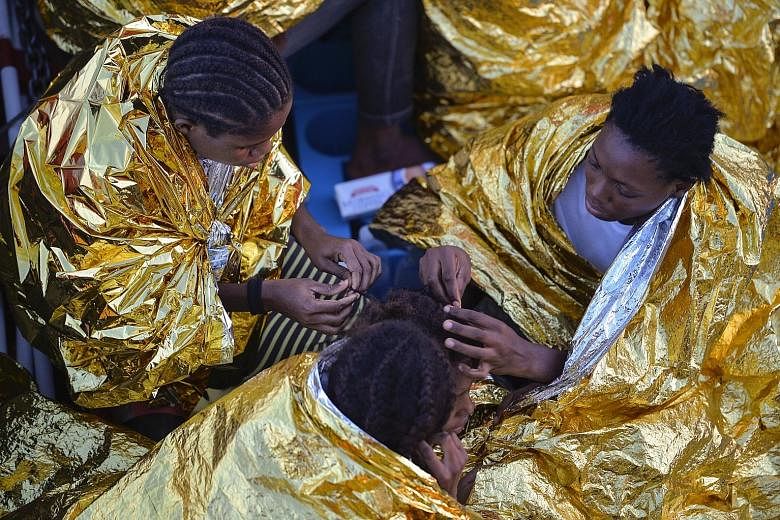ROME • They arrive in their hundreds every month, their heads full of dreams of new lives in Europe. In reality, many of them are destined for years of sexual slavery.
And in Italy's migrant-saturated southern ports, prising these young Nigerian girls away from their traffickers is a formidable challenge.
With each new landing of migrants rescued at sea, the well-worn processing procedures have an almost ritualistic aspect to them: an identification interview, cuddly toys for the children and a specialist from the International Organisation for Migration (IOM) paying particular attention to any young women.
Nigerian females have been landing in Italy in significant numbers since the 1980s, lured by the promise of jobs, only to find themselves with colossal debts to their traffickers. According to IOM figures, 433 Nigerian women arrived in 2013, 1,454 in 2014, 5,653 last year and 7,768 in the first nine months of this year.
"We estimate that between 70 and 80 per cent of them are in danger of being forced into prostitution," said IOM's Luca Pianese, adding that the numbers do not include hundreds of minors.
Some of the women will end up working on the streets of Italy, others in France, Spain, Austria or other European countries, serving 10 to 20 clients a day for less than €20 (S$30.7) a time with no guarantee that some of the punters will not be violent.
Mr Pianese, who works as part of a 13-strong team that includes two women of Nigerian origin, has learned how to spot the signs that newly arrived women have been trafficked: Most of the victims come from Edo state in southern Nigeria, they invariably have had only the most basic education and say they can remember little about how they got from Nigeria to the Mediterranean. Usually the women have a phone number they have been told to call when they arrive.
"They arrive here full of hope, confident they are headed for a better future," Mr Pianese says. "Unfortunately our duty is to smash their dream."
Even those women savvy enough to suspect that all might not be as it has been presented to them have little idea of the violence that awaits them, or how hard it will be for them to repay the debts they have incurred. Typically this will be between €20,000 and €50,000.
Italian law guarantees residency rights and social support to women trafficked for prostitution. Despite that, the IOM says barely 300 women accepted such help between the beginning of last year and the end of August.
According to Nigerian nun Monica Chikwe, who coordinates a network of safe houses for trafficked African women, that is not surprising. In Nigeria, "no one tells the truth" and when they hear about Europe "all the girls can see are sequins", she says.
Many of the victims also take part in voodoo ceremonies before they leave Nigeria and fear reprisals against their families if they do not pay back their debts.
As a result, most of them will maintain a stony silence until they reach reception centres, where traffickers will come to find them. In such cases, all the IOM can do is give them an emergency number they can call at any time. The toll-free number received some 150 calls in 2015 and the first half of this year.
Faced with this situation, the Italian government recently allocated €15 million to establish specialist reception centres. They are already nearly all full.
AGENCE FRANCE-PRESSE

